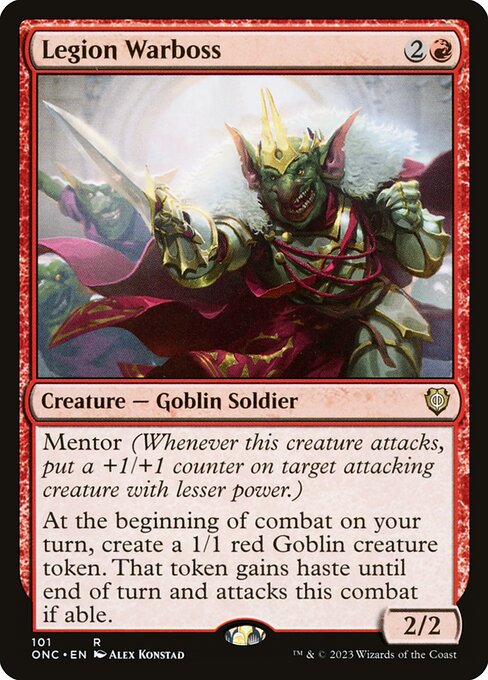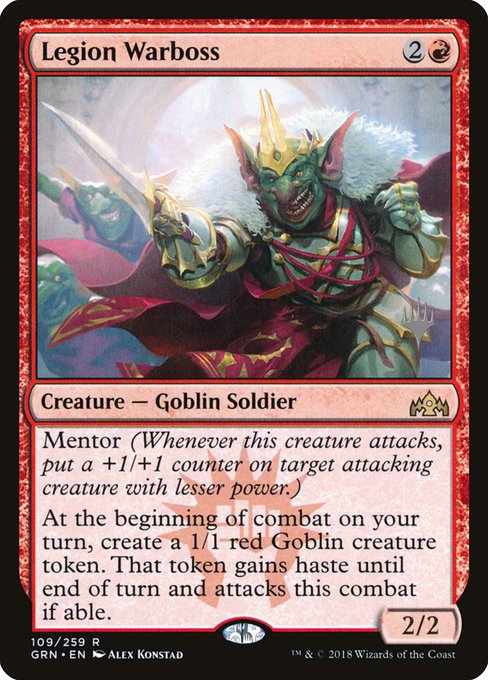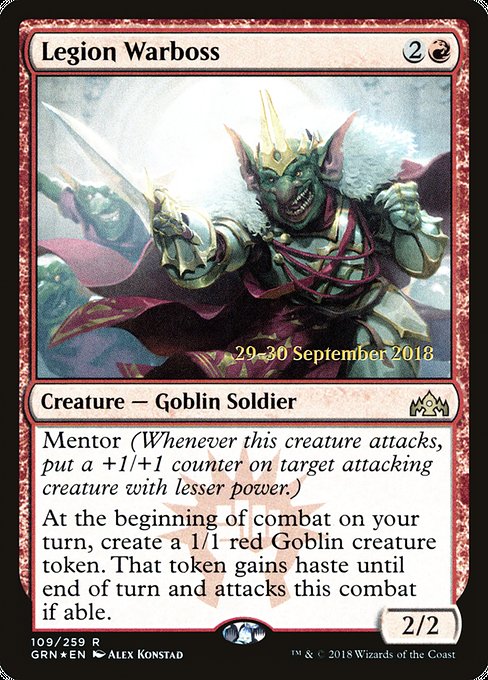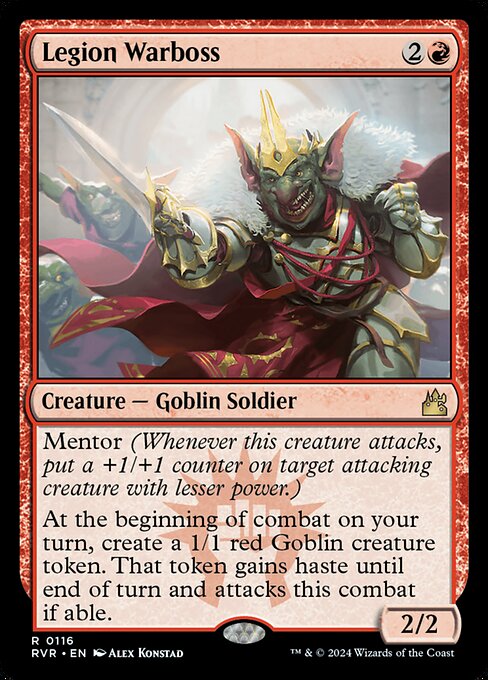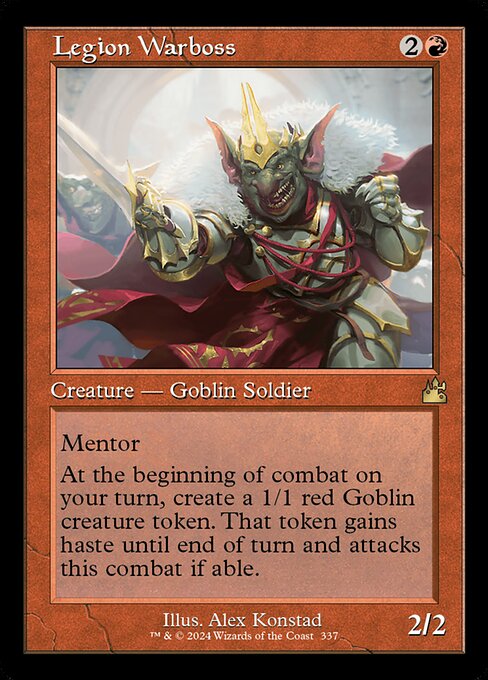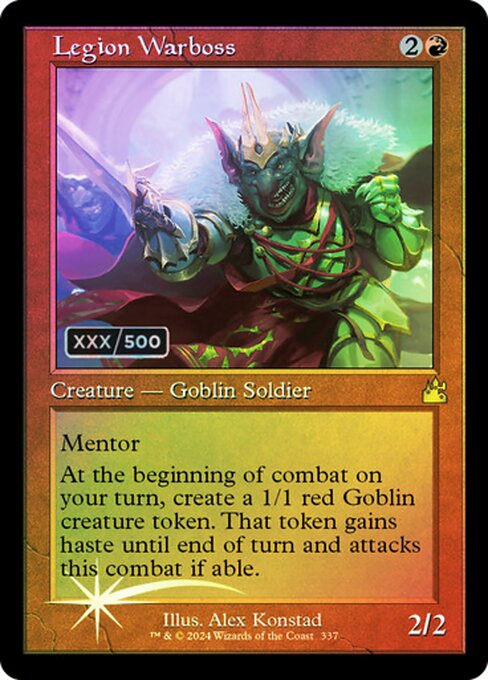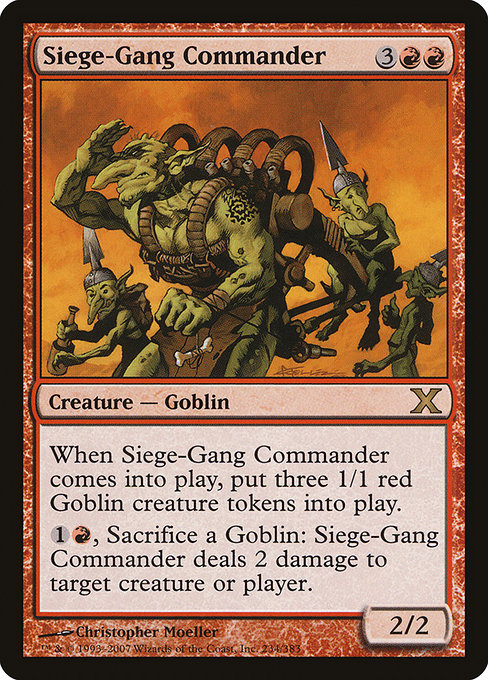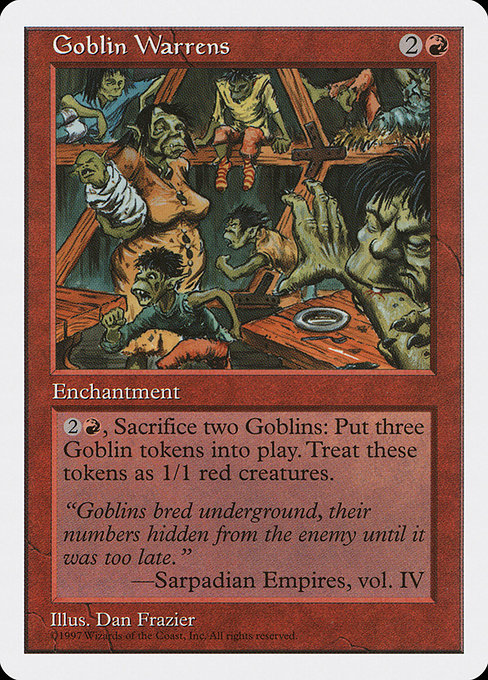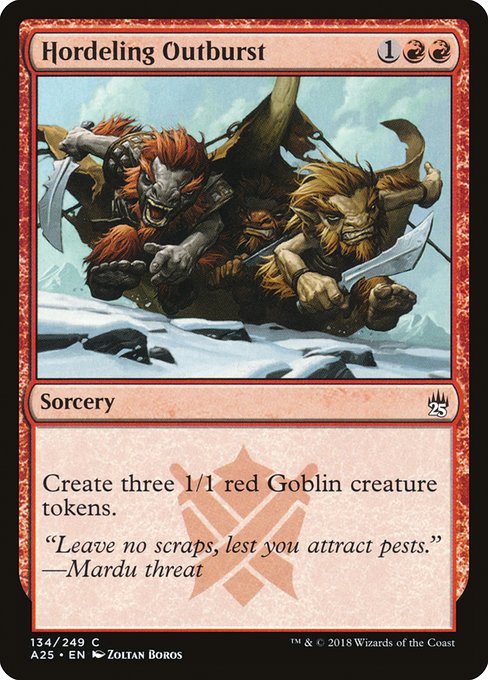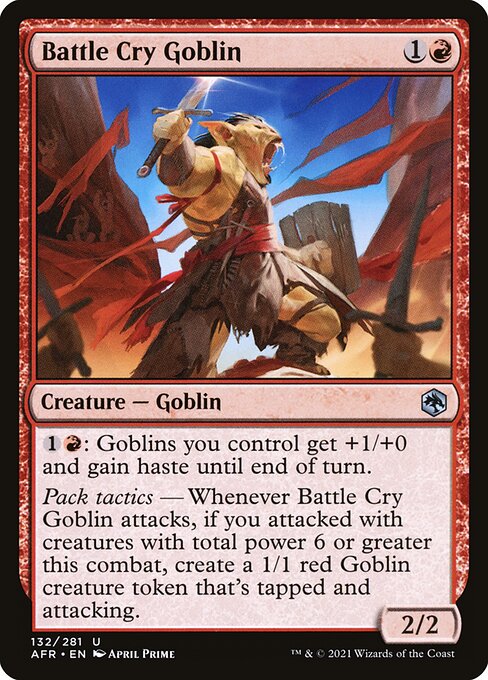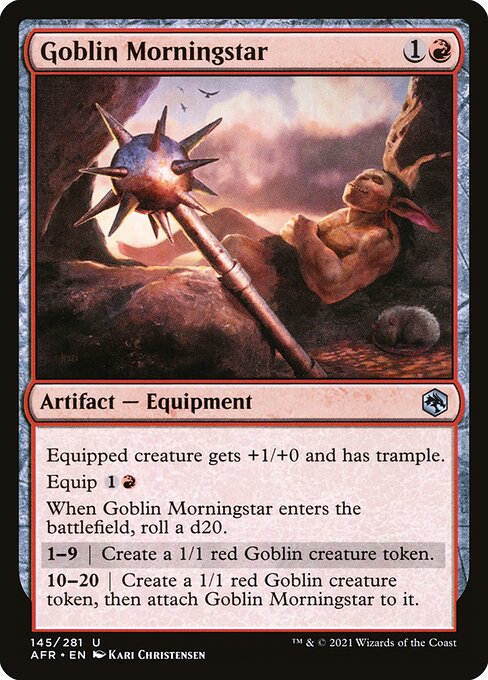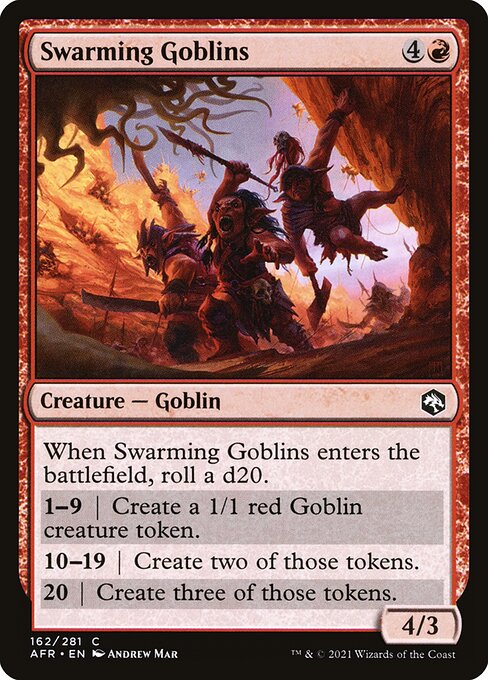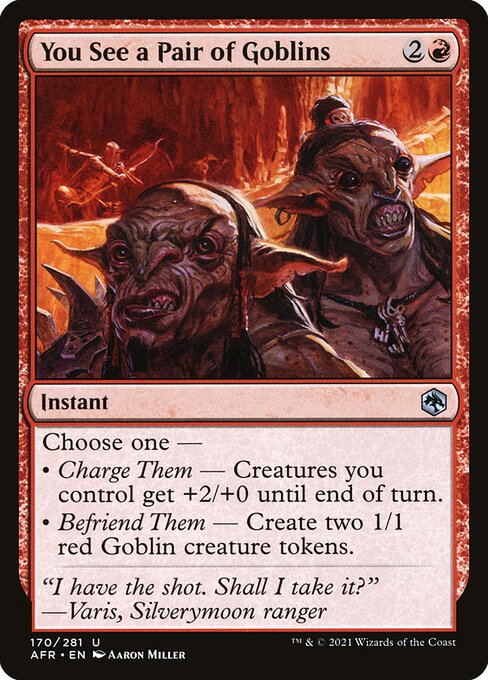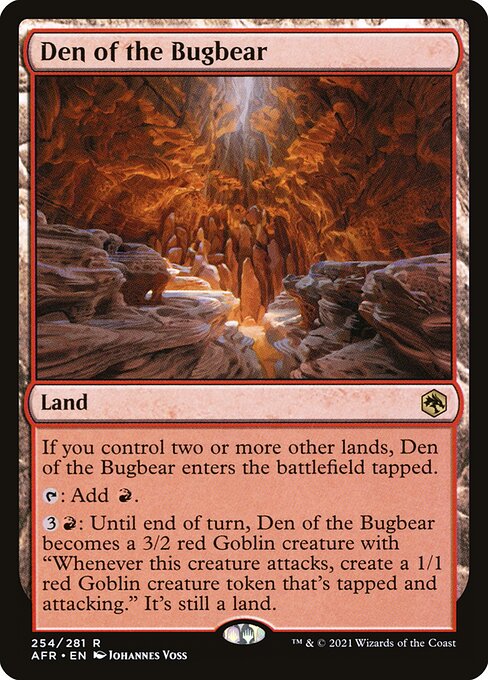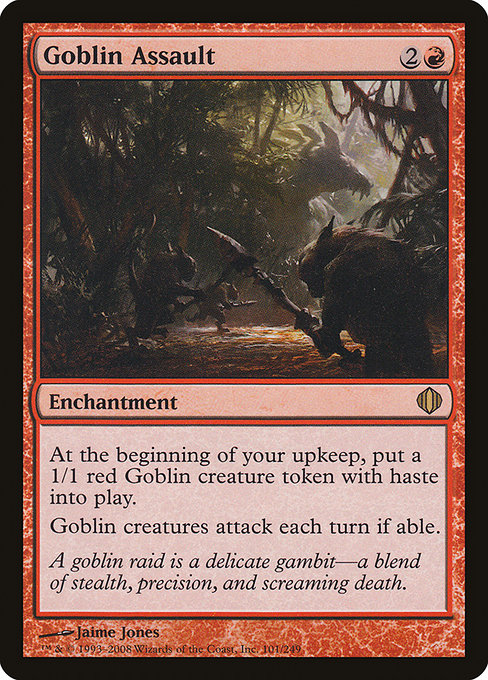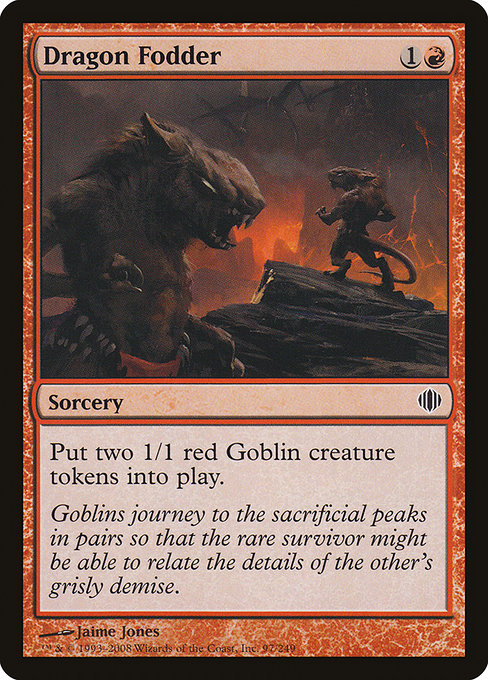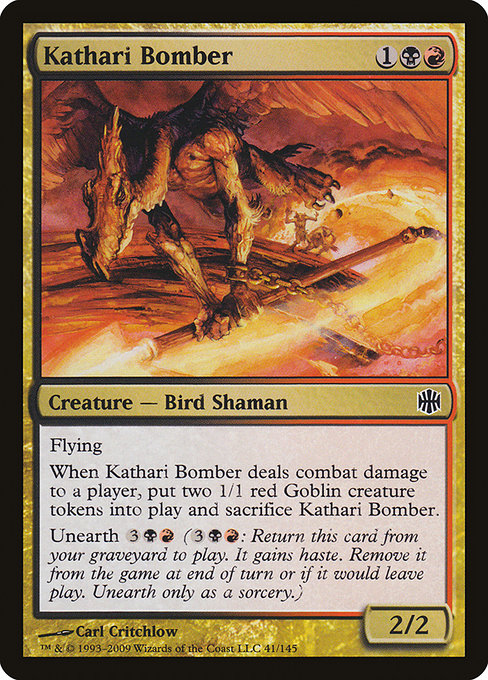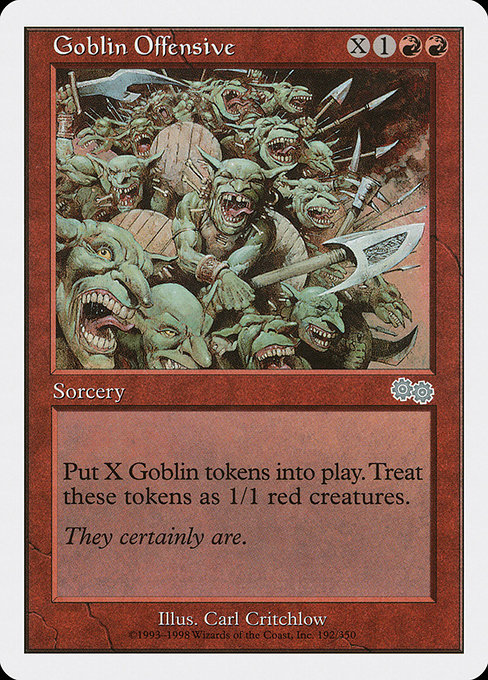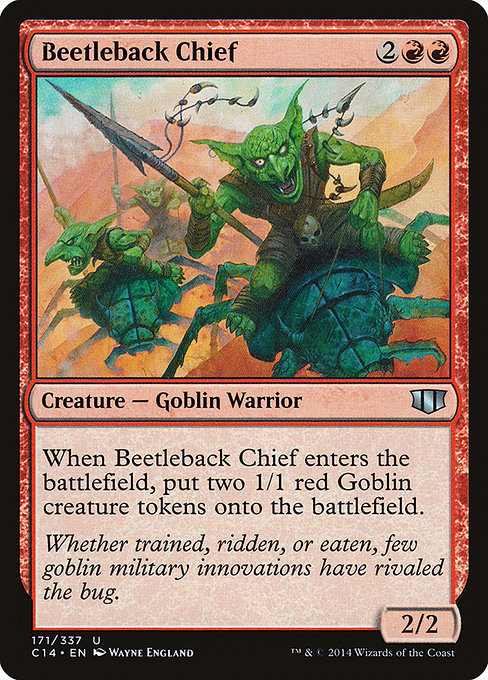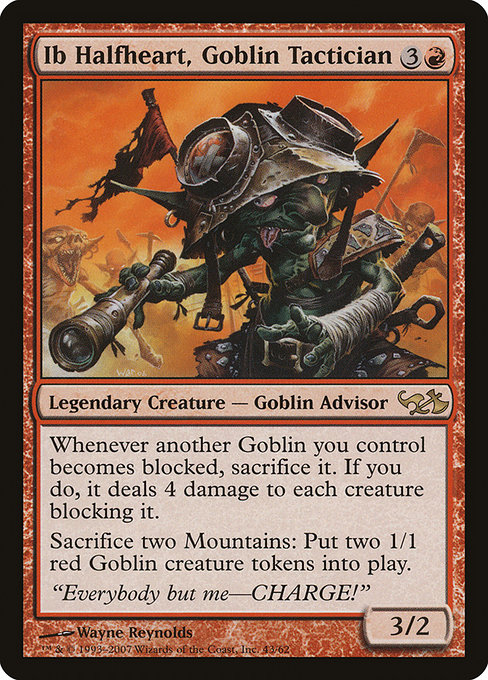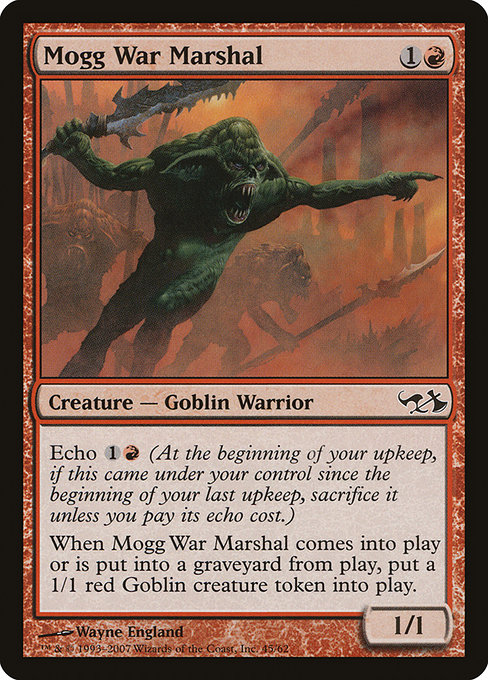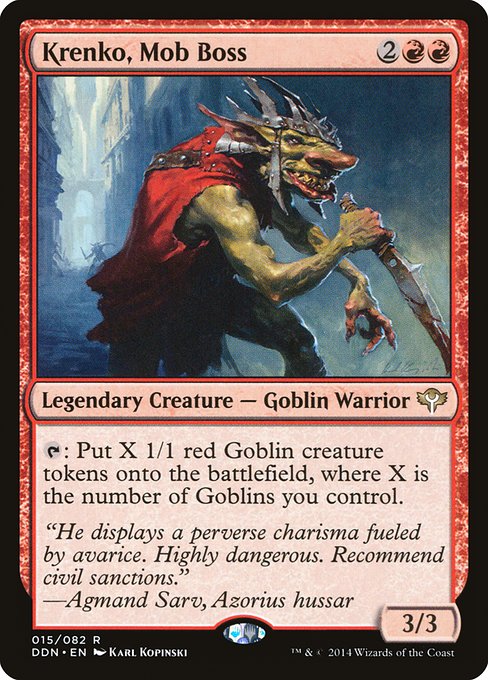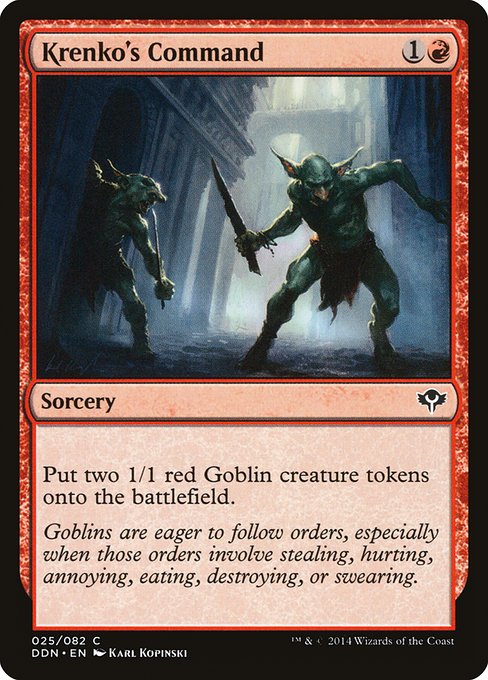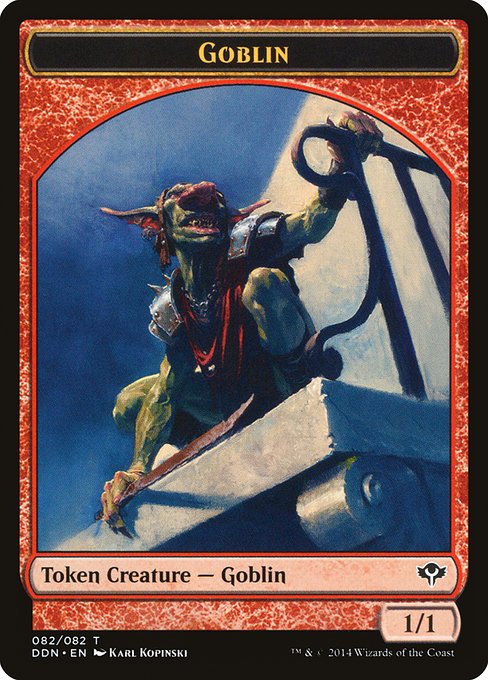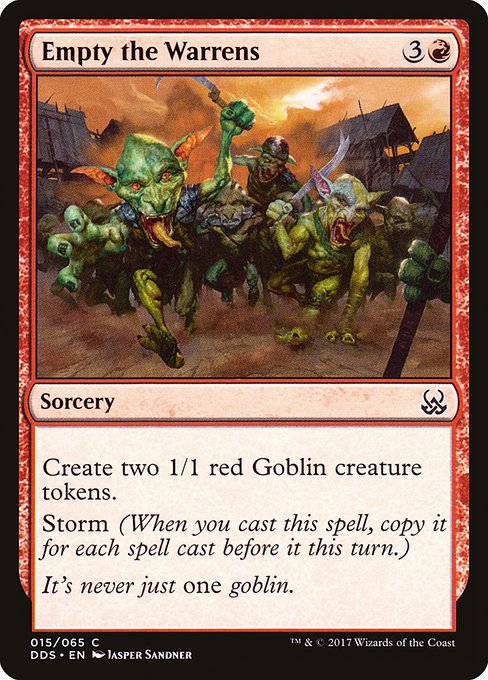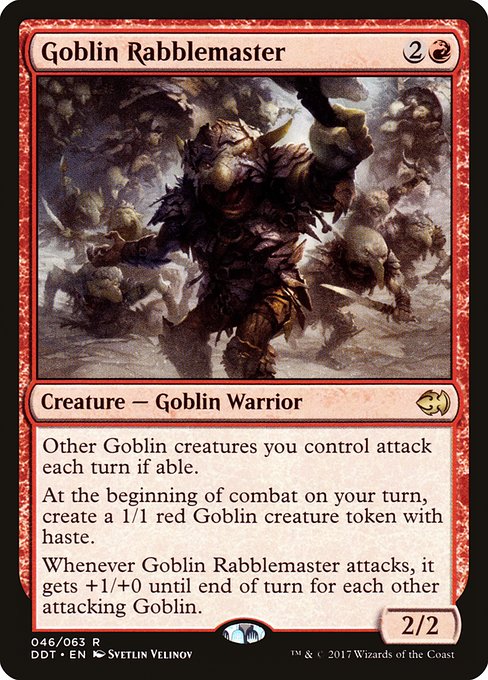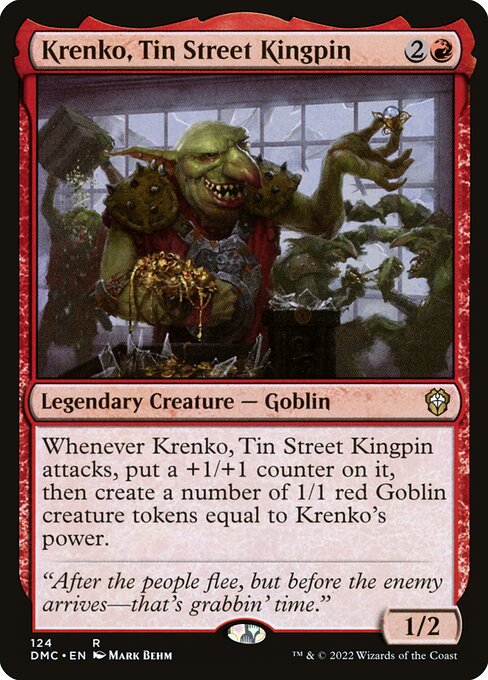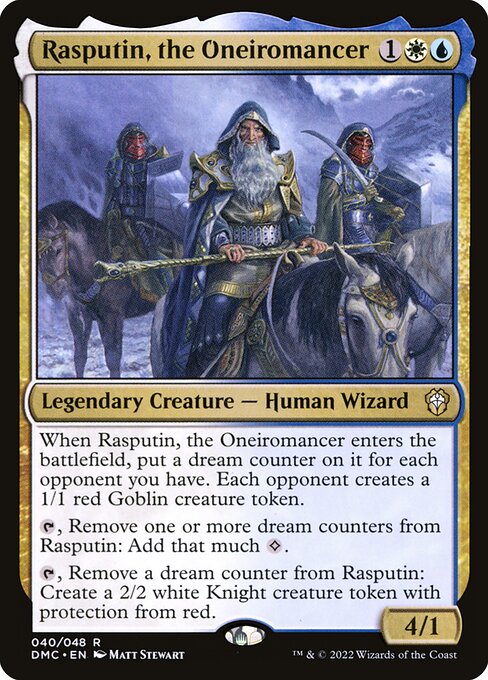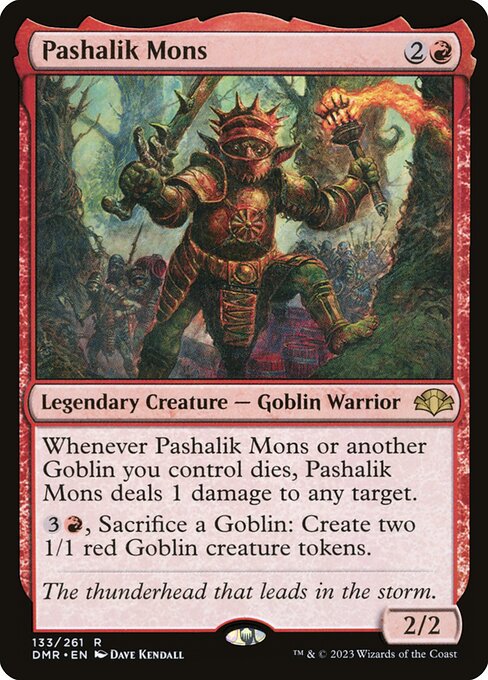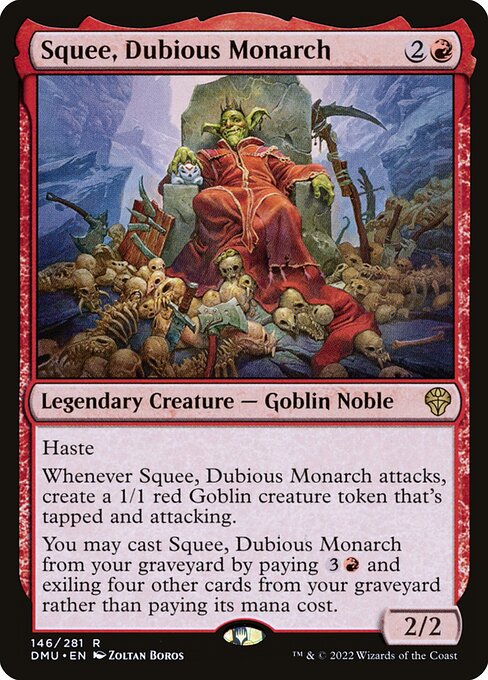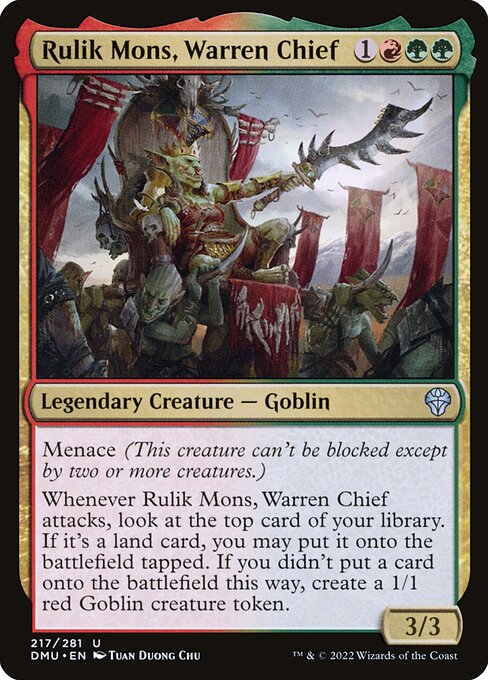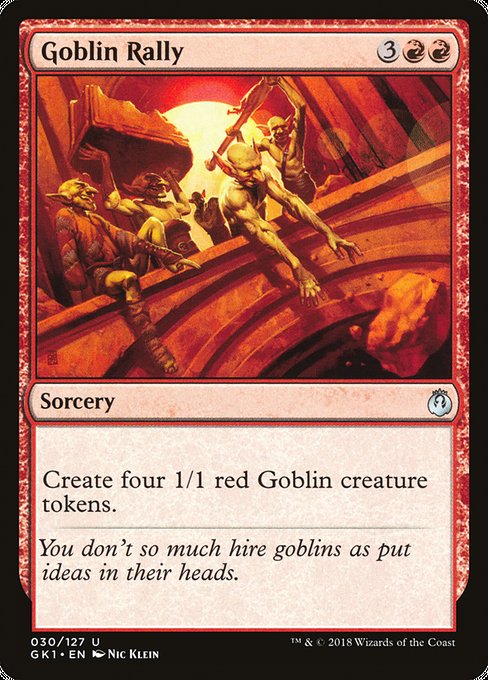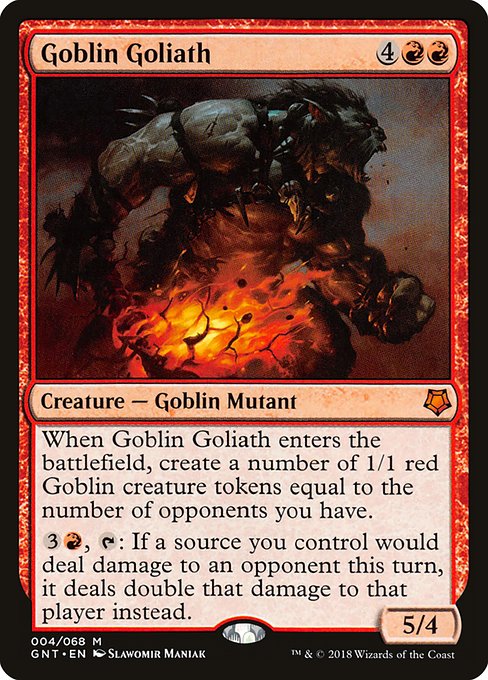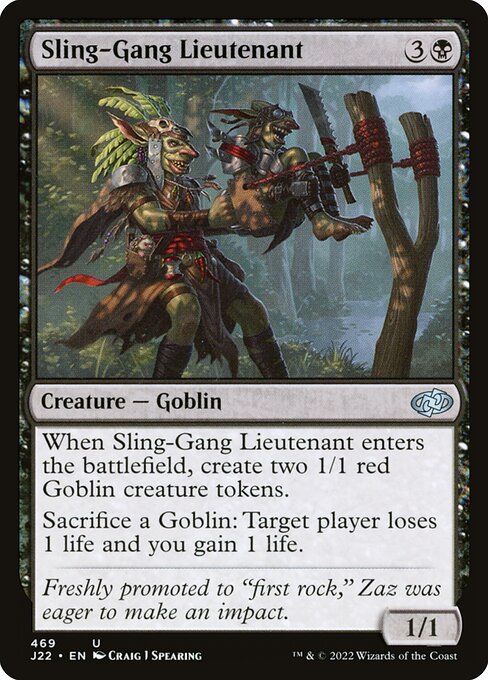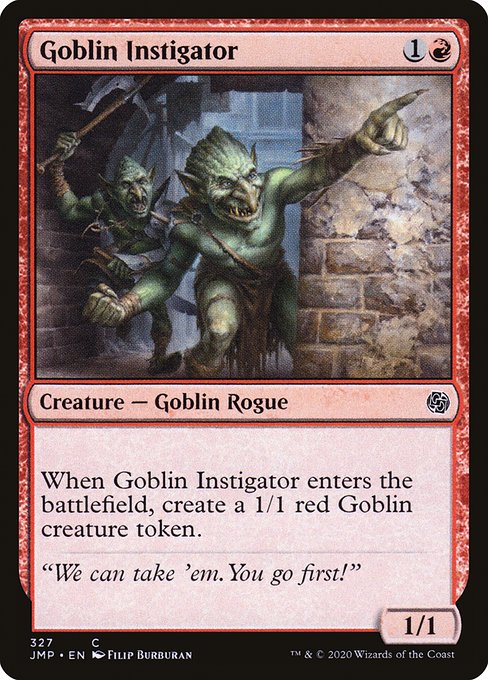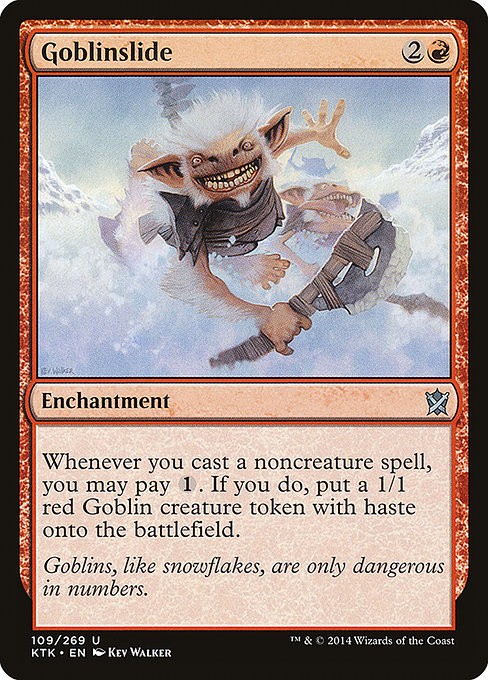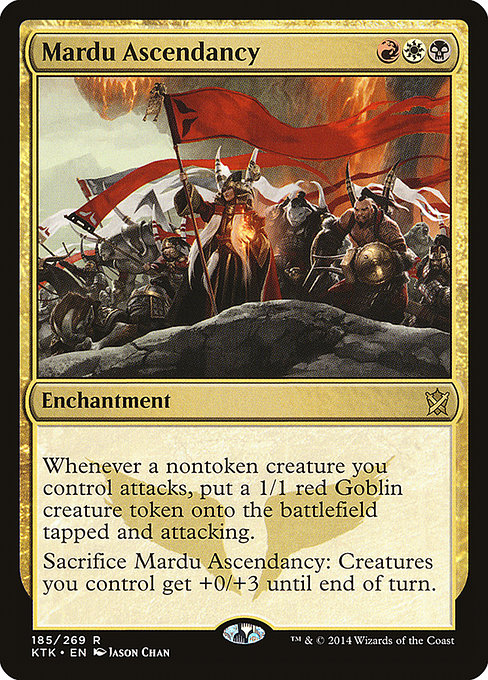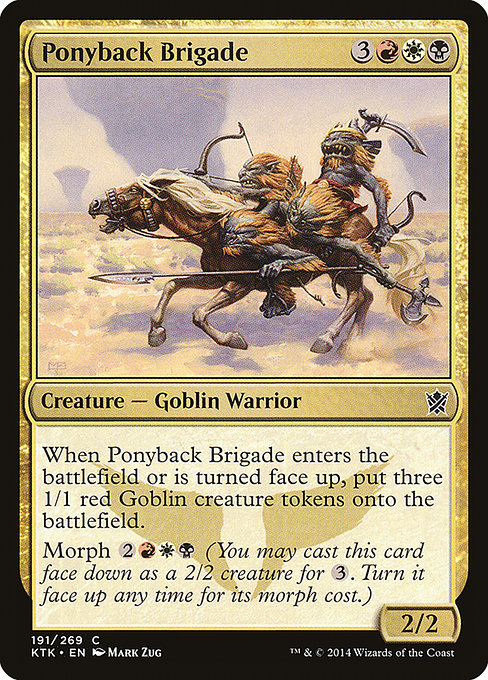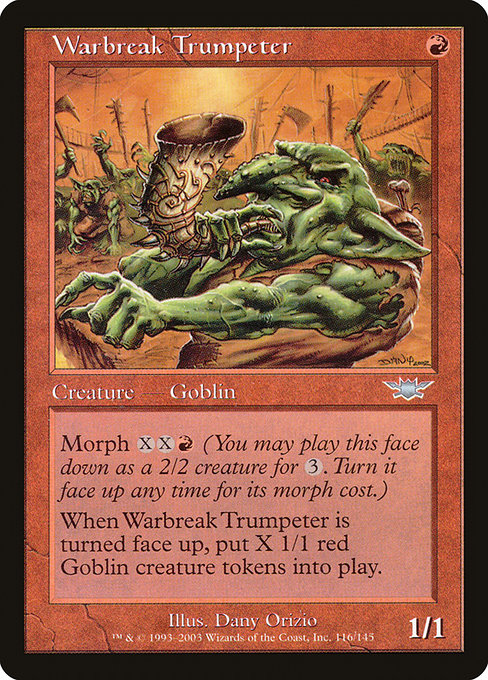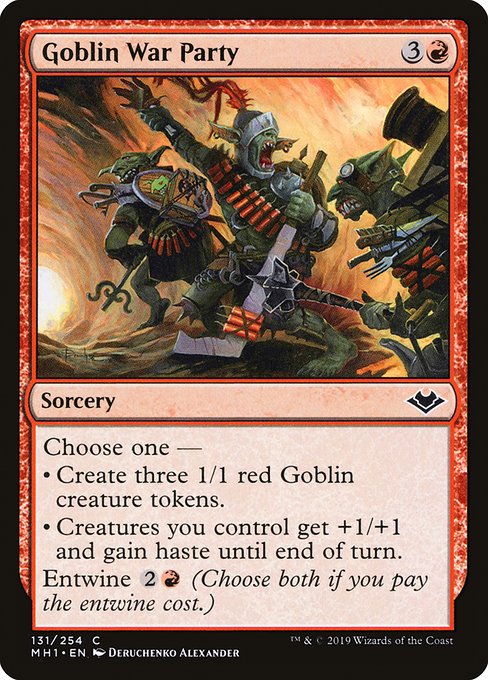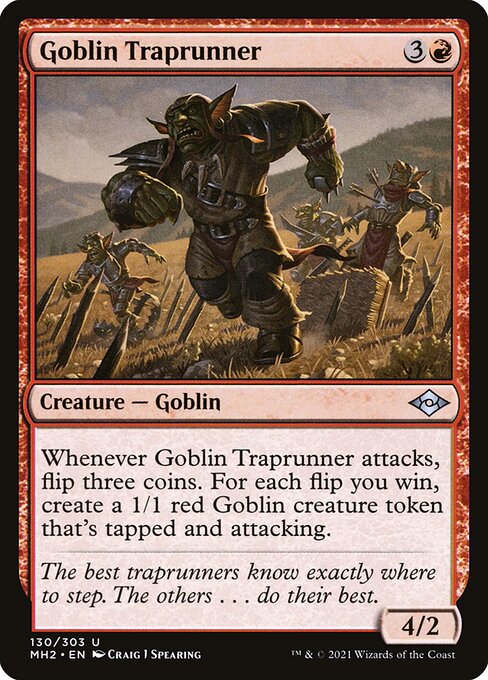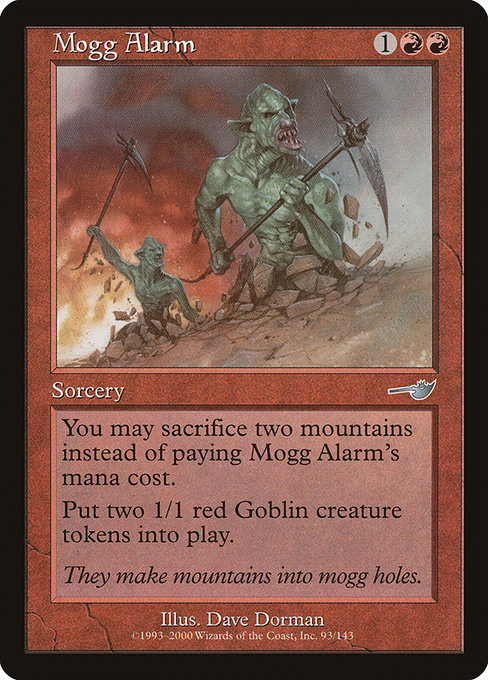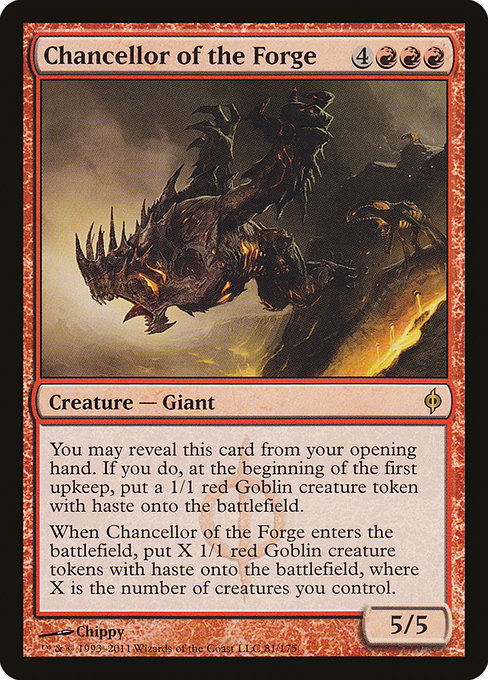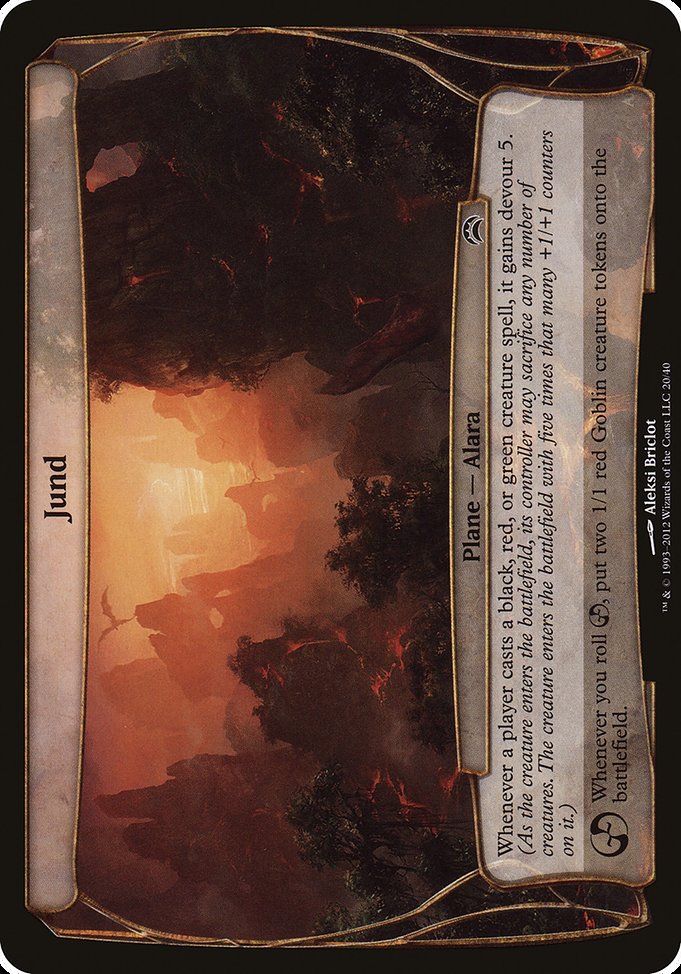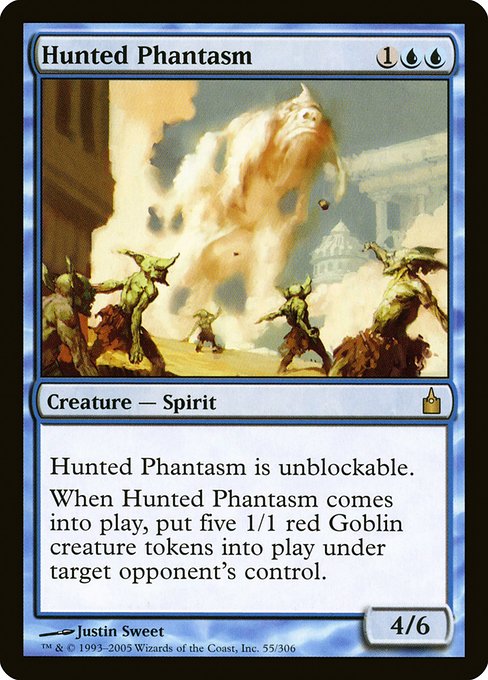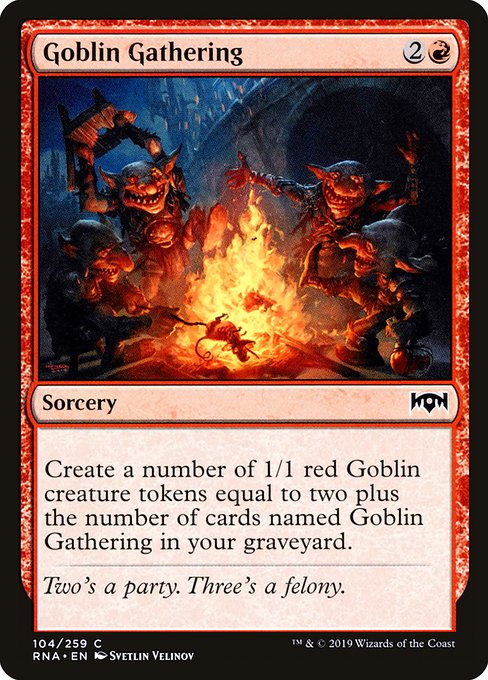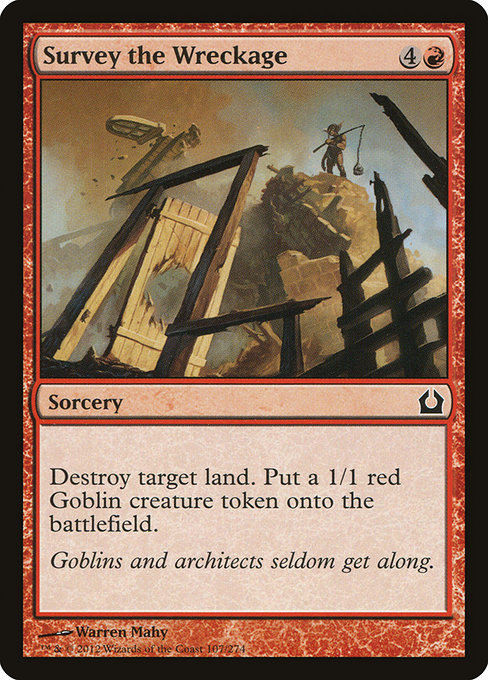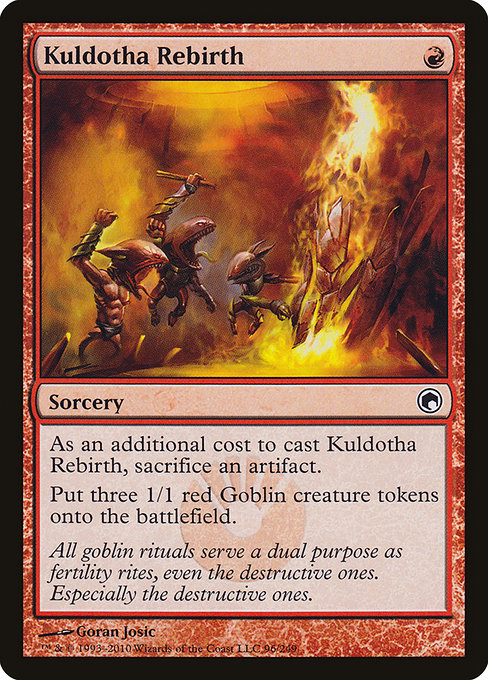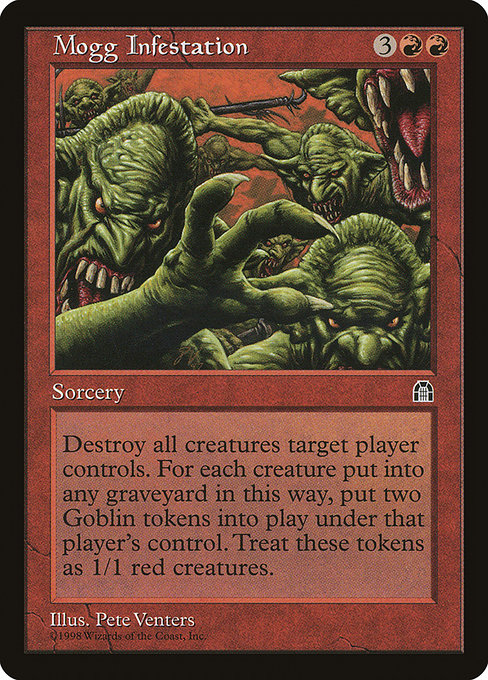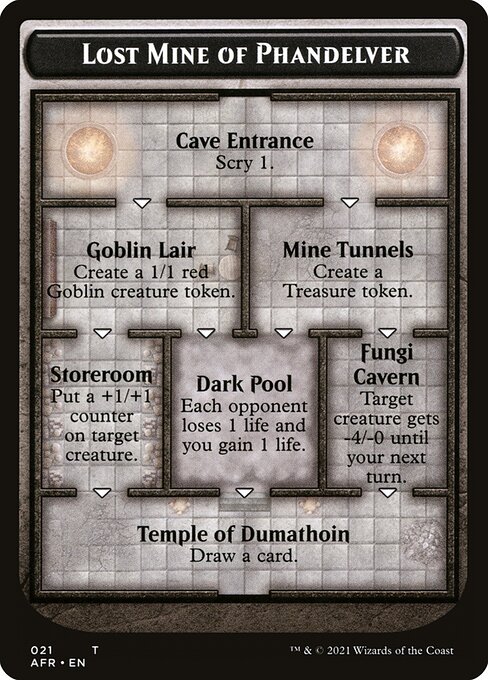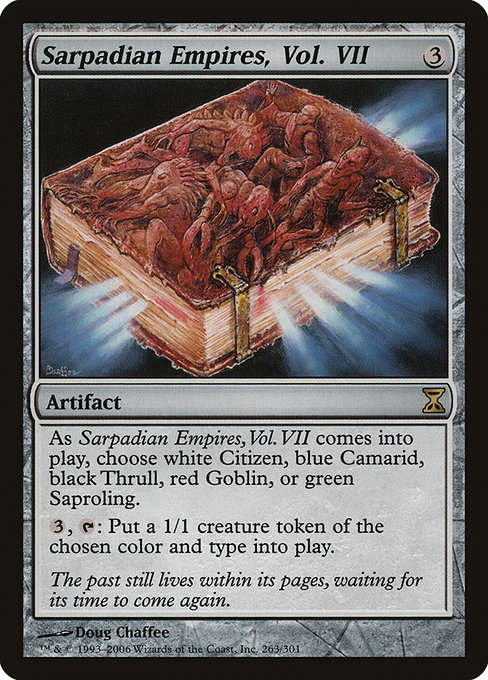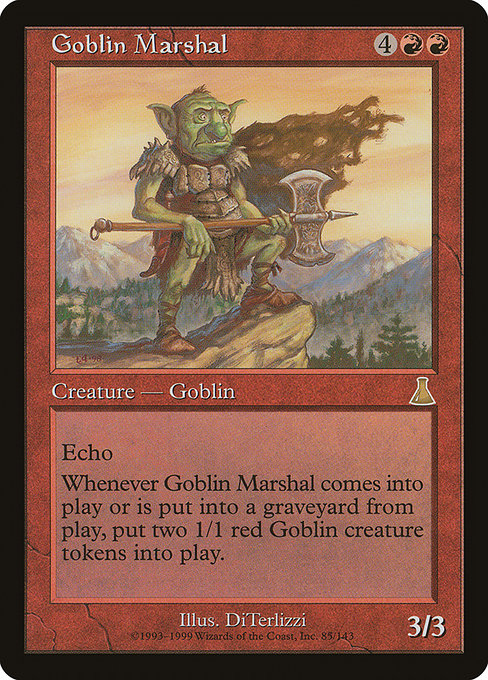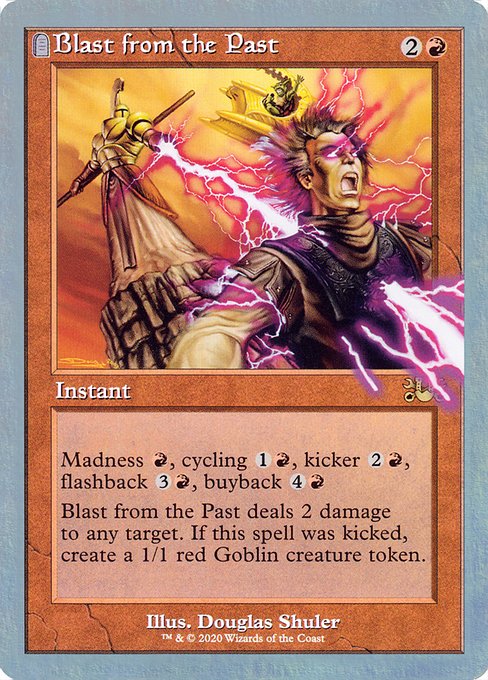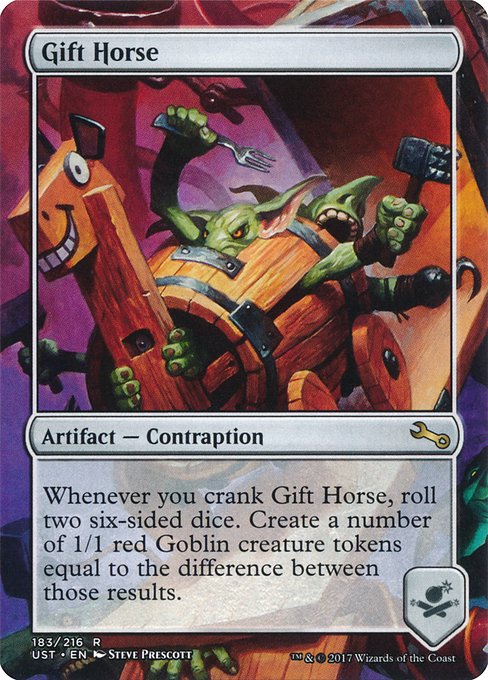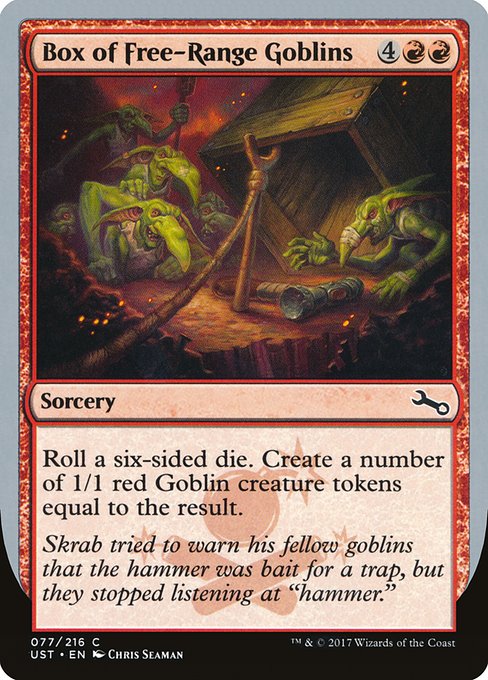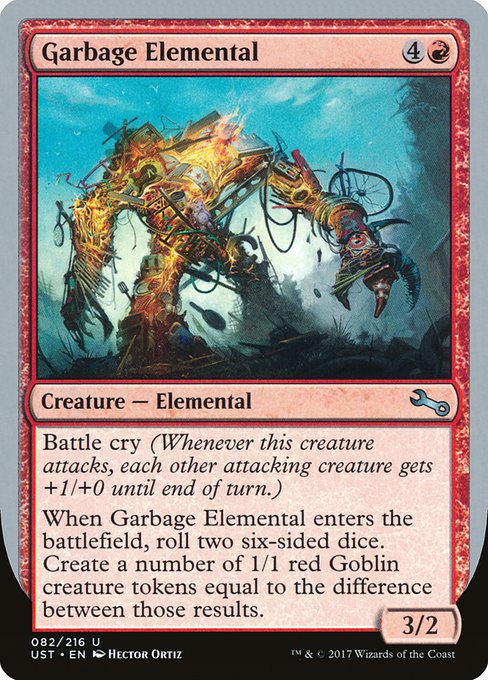Capoguerra della Legione
Creatura — Soldato Goblin
Mentore (Ogniqualvolta questa creatura attacca, metti un segnalino +1/+1 su una creatura attaccante bersaglio con forza inferiore.)
All'inizio del combattimento nel tuo turno, crea una pedina creatura Goblin 1/1 rossa. Quella pedina ha rapidità fino alla fine del turno e attacca in questo combattimento, se può farlo.
All'inizio del combattimento nel tuo turno, crea una pedina creatura Goblin 1/1 rossa. Quella pedina ha rapidità fino alla fine del turno e attacca in questo combattimento, se può farlo.
2/2
standard
future
historic
gladiator
pioneer
explorer
modern
legacy
pauper
vintage
penny
commander
brawl
alchemy
paupercommander
duel
oldschool
premodern
Rulings
If the creature with mentor leaves the battlefield with mentor on the stack, use its power as that creature last existed on the battlefield to determine whether the target creature has less power.
If the token can’t attack for any reason (such as becoming tapped), then it doesn’t attack. If there’s a cost associated with having it attack, its controller isn’t forced to pay that cost, so it doesn’t have to attack in that case either.
If the target creature’s power is no longer less than the attacking creature’s power as the ability resolves, mentor doesn’t add a +1/+1 counter. For example, if two 3/3 creatures with mentor attack and both mentor triggers target the same 2/2 creature, the first to resolve puts a +1/+1 counter on it and the second does nothing.
Mentor compares the power of the creature with mentor with that of the target creature at two different times: once as the triggered ability is put onto the stack, and once as the triggered ability resolves. If you wish to raise a creature’s power so its mentor ability can target a bigger creature, the last chance you have to do so is during the beginning of combat step.
If the token can’t attack for any reason (such as becoming tapped), then it doesn’t attack. If there’s a cost associated with having it attack, its controller isn’t forced to pay that cost, so it doesn’t have to attack in that case either.
If the target creature’s power is no longer less than the attacking creature’s power as the ability resolves, mentor doesn’t add a +1/+1 counter. For example, if two 3/3 creatures with mentor attack and both mentor triggers target the same 2/2 creature, the first to resolve puts a +1/+1 counter on it and the second does nothing.
Mentor compares the power of the creature with mentor with that of the target creature at two different times: once as the triggered ability is put onto the stack, and once as the triggered ability resolves. If you wish to raise a creature’s power so its mentor ability can target a bigger creature, the last chance you have to do so is during the beginning of combat step.
Rulings
If the creature with mentor leaves the battlefield with mentor on the stack, use its power as that creature last existed on the battlefield to determine whether the target creature has less power.
If the token can’t attack for any reason (such as becoming tapped), then it doesn’t attack. If there’s a cost associated with having it attack, its controller isn’t forced to pay that cost, so it doesn’t have to attack in that case either.
If the target creature’s power is no longer less than the attacking creature’s power as the ability resolves, mentor doesn’t add a +1/+1 counter. For example, if two 3/3 creatures with mentor attack and both mentor triggers target the same 2/2 creature, the first to resolve puts a +1/+1 counter on it and the second does nothing.
Mentor compares the power of the creature with mentor with that of the target creature at two different times: once as the triggered ability is put onto the stack, and once as the triggered ability resolves. If you wish to raise a creature’s power so its mentor ability can target a bigger creature, the last chance you have to do so is during the beginning of combat step.
If the token can’t attack for any reason (such as becoming tapped), then it doesn’t attack. If there’s a cost associated with having it attack, its controller isn’t forced to pay that cost, so it doesn’t have to attack in that case either.
If the target creature’s power is no longer less than the attacking creature’s power as the ability resolves, mentor doesn’t add a +1/+1 counter. For example, if two 3/3 creatures with mentor attack and both mentor triggers target the same 2/2 creature, the first to resolve puts a +1/+1 counter on it and the second does nothing.
Mentor compares the power of the creature with mentor with that of the target creature at two different times: once as the triggered ability is put onto the stack, and once as the triggered ability resolves. If you wish to raise a creature’s power so its mentor ability can target a bigger creature, the last chance you have to do so is during the beginning of combat step.
Your collection? Your decks?
Want to manage your collection and/or create decks?
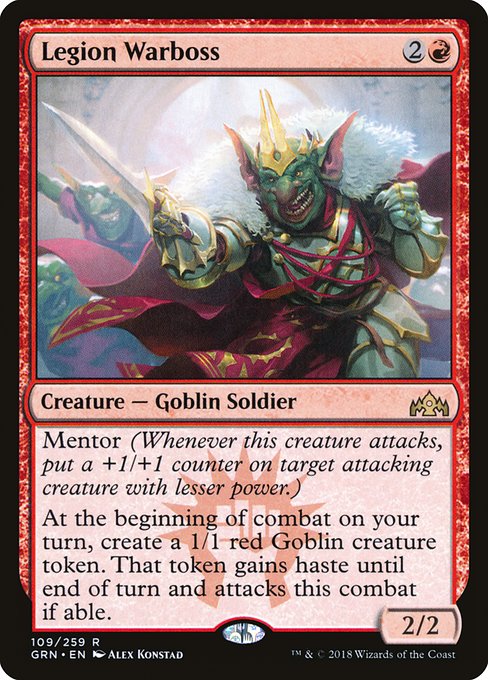

 0
0
 0.54€
0.54€
